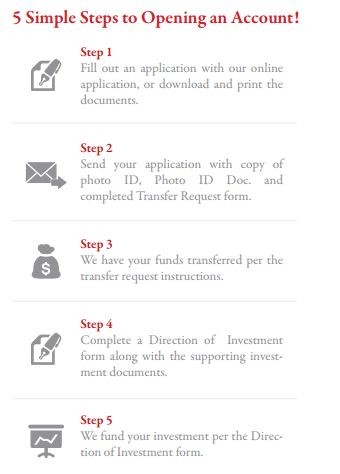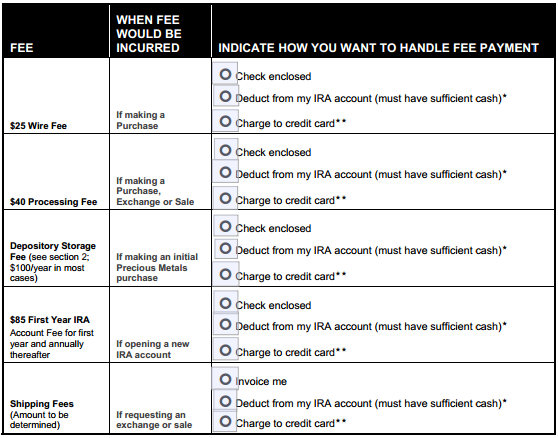Gold IRA Options For Investing In Gold Using A SelfDirected IRA Or Traditional IRA
Post on: 27 Июнь, 2015 No Comment

The past few years have proven to be incredible for gold investors, and as a result more and more people are looking for ways to invest in Gold using their IRA and 401(k). The good news is there are many options available to you for investing in Gold using your retirement accounts, but depending on which type of gold investment you wish to make, you may need a different type of retirement account.
Investing in Gold with a Traditional IRA
A traditional IRA is a retirement account under your control that is held at a brokerage (ie Fidelity, Edward Jones, etc.). With these accounts you typically have the ability to invest in whatever options are offered by the brokerage, including stocks, bonds, mutual funds, ETFs, etc. With precious metals — gold in particular — performing so well of late, there are a lot of funds now that offer investors the ability to invest in gold. If your broker doesnt offer the fund you want, you can easily move your IRA over to a different broker who does you control the account. Here are a few of the options you should have available to you in a traditional IRA account:
Gold Mutual Funds:
Mutual funds can offer gold investment exposure, however, make sure you read through the funds prospectus carefully to ensure you fully understand what they are getting. A mutual fund might call themselves a gold investment fund, but what that exactly constitutes is open for debate. Do they lump gold in with precious metals? Do they require a certain percentage of assets to remain invested in gold bullion? What percentage of assets do they allow to be invested in gold mining companies? If they allow investments into gold mining companies, what percentage of those companies revenues must be derived from gold mining? These are just a few of the answers you need to look for in the prospectus. In addition, with mutual funds you need to pay attention to management fees as well. Here is a list of precious metal mutual funds .
Gold ETFs:
ETFs have become much more popular over the years thanks to their lower management fees. Unlike mutual funds, ETFs arent actively managed, which helps keep their fees low. If you are looking for a true gold investment, ETFs are going to be your best bet. As with mutual funds, you need to pay attention to asset allocation, but there are options available that only invest in gold bullion and also offer low expense rates.
If you want to invest in gold, and gold only, you can look at something like SPDR Gold Trust (GLD) or iShares Gold Trust (IAU). Or, if you want to diversify into a basket of precious metals, there are options for that as well. Again, just make sure to read through the documentation carefully so you understand what you are investing in. Here is a list of precious metal ETFs .
Gold Mining Stocks:
If you want some exposure to gold, but are looking for additional upside potential, gold mining stocks might be for you. While gold mining stocks are impacted by the price of gold, it is important to remember that there are many other factors that can cause gold mining stocks to go up or down beyond the price of gold. Here are some additional things that can impact share value for gold mining stocks:
- How much does it cost the gold miner to get their gold out of the ground? Is this cost increasing or decreasing?
- The amount of gold the company is expected to have in their mines (gold reserves). Is the company increasing this through new mining endeavors or acquisitions, or is this number decreasing?
- Faith in management and leadership
- Is the company an acquisition target for larger companies? Gold mining companies are bought and sold all the time as larger fish look for ways to expand their gold reserves. If a small company recently discovered a new large new mine, or doesnt have the resources to fully take advantage of the mines they are currently operating, it is likely they are being looked at closely by larger companies as a potential acquisition target.
- In addition to gold, there will also be other precious metals present in the mines. What additional metals are being mined? What are the values of these, and the corresponding cost of extraction?

This list is not meant to be exhaustive, but simply to get you thinking about all the different things that can impact share price beyond gold price increases and decreases.
The Traditional 401(k) For Gold Investments
401(k) accounts can sometimes be tricky for investors looking for ways to invest in alternative investments like gold. Typically these accounts are controlled by your employer, and as a result you are restricted to the investment options offered as part of your employers plan. If you dont like them, your only option is to leave the company, at which point you could roll those funds into an IRA.
If your company offers a self-directed 401(k) plan, which allows you to choose whichever investments you want that are offered by the broker (ie Charles Schwab, E-Trade, etc.), then theoretically you have all the same options available to you that the IRA investor does (detailed above). However, the more likely scenario is that your investment options are limited to a select number of mutual funds and/or ETFs. There might be one or two funds available to you that track precious metals or commodities, but that is about the best you can hope for in this case. The problem is that when you buy into a fund investing in commodities or precious metals, you are not getting a true investment in gold. Sure, the fund might invest in gold, but it is also likely investing in silver, copper and other metals. If it is a commodity fund, then along with gold, you will also be investing in agricultural items like corn and coffee.
The ultimate Gold IRA The Self-Directed IRA
A self-directed IRA gives you the most options for investing in gold. The difference between a traditional IRA and a self-directed IRA, is that a self-directed IRA custodian will allow you to invest in non-traditional assets — in addition to traditional ones (stocks, bonds, mutual funds & ETFs). With a traditional IRA you can invest in gold bullion through an ETF, but you cant actually buy the bullion itself, nor can you buy gold coins. Make sure to take a look at NuWire’s list of self-directed IRA custodians .
A self-Directed IRA allows you to invest in everything available to traditional IRA gold investors, but in addition you can also purchase physical gold bullion and gold coins. One caveat to this is that you are not allowed to invest in collectables inside retirement accounts so you cannot invest in collectable coins. The guideline the IRS has set is that the coin needs to be at least 99.5% pure to qualify as an investment. Also remember that if you buy physical gold bullion or gold coins, you need to account for storage and insurance costs.














